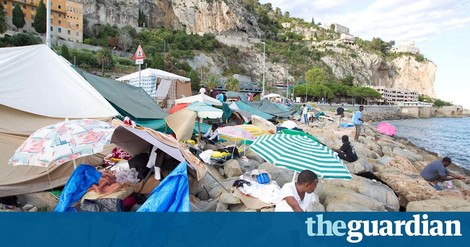Your podcast discovery platform
Curious minds select the most fascinating podcasts from around the world. Discover hand-piqd audio recommendations on your favorite topics.

piqer for: Global finds Globalization and politics Technology and society
Turkish journalist, blogger and media expert. Writes regular columns for The Arab Weekly and contributes to Süddeutsche Zeitung, El Pais and the Guardian. An European Press Prize Laureate for 'excellence in journalism' in 2014, Baydar was awarded the prestigious 'Journalistenpreis' in Germany by Südosteuropa Foundation in February 2018.
Italy Shows Its Deep Frustration With Its EU Neighbours, And It Is Right To Do So
Europe’s sun-kissed southern shores are more sought-after than ever. But many of this year’s visitors belong to new waves of refugees fleeing persecution and poverty in Africa, south Asia and the Middle East.
The refugee crisis is rapidly swelling up, as Simon Tisdall, with the Guardian, underlined in an article. The data he lays out is highly alarming, and the way some members of the EU react to it threatens the very values on which the EU project stands on.
Nearly 95,000 people, a majority from sub-Saharan countries, have arrived by boat in southern Italy so far this year, up 17% on 2016. About 2,200 have died in the attempt. European efforts to deal with the influx, hastily enacted two years ago at the height of Syria’s civil war, are faltering. A burden-sharing deal agreed by all 28 EU states in 2015, when Germany took nearly 1 million people, has arguably never worked. Of 160,000 refugees due to be accepted under the scheme, fewer than 21,000 have been relocated.
Along with Germany, it is Greece and Italy bearing the burden, and these two countries are understandably very frustrated with the refusal policies of some governments in Central Europe, and, France.
Split, Tisdall argues, is inevitable, with serious consequences.
Poland and Hungary have refused to take anyone. The Czech Republic initially accepted 12 people but has since slammed the door. The European commission has begun legal action against all three. Italy and Greece, so-called “frontline states”, are at odds with their northern neighbours, notably France and Austria.
Paris is preventing vessels carrying rescued migrants docking in French ports. Nor has France met its share of the European Union relocation quota.
The Vienna government says it will close the Brenner Pass if Italy issues temporary travel visas for the migrants.
Here is a powerful report by the Guardian, from Ventimiglia — a symbolic crossing point at Italian–French border — detailing how deep the crisis becomes.
